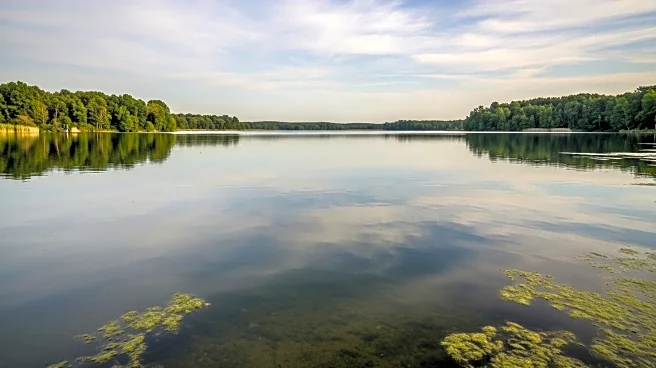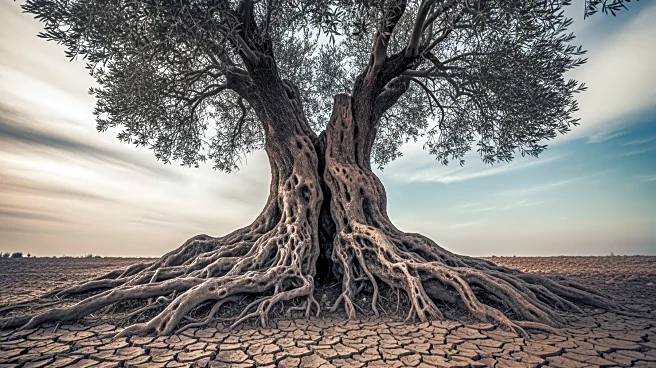What's Happening?
Lough Neagh, the UK's largest lake, is experiencing a severe environmental crisis due to a significant increase in toxic algal blooms. The number of cyanobacteria detections has tripled compared to the previous year, severely impacting local fisheries and the ecosystem. The algal blooms are primarily caused by excessive phosphorus and nitrogen from agricultural runoff, wastewater treatment facilities, and septic tank leakage. Despite efforts to address the pollution, political and financial challenges have stalled progress, leaving the lake's future uncertain.
Why It's Important?
The crisis at Lough Neagh highlights the urgent need for effective environmental management and pollution control measures. The algal blooms threaten biodiversity, local economies, and public health, underscoring the broader implications of water pollution. The situation serves as a warning for other regions facing similar challenges, emphasizing the importance of sustainable agricultural practices and robust wastewater management systems. The economic impact on local fishers, who have seen incomes plummet, further illustrates the interconnectedness of environmental health and economic stability.
What's Next?
Efforts to mitigate the pollution at Lough Neagh will require coordinated action from government agencies, local communities, and stakeholders. Implementing the proposed Nutrients Action Programme and securing necessary funding will be crucial steps in addressing the root causes of the pollution. The ongoing political debate and resistance from certain sectors may delay progress, but continued advocacy and public awareness could drive change. Monitoring and research will be essential to understanding the long-term effects of the algal blooms and developing effective solutions.
Beyond the Headlines
The ethical considerations of balancing economic interests with environmental protection are central to the Lough Neagh crisis. The role of private land ownership and the responsibilities of stakeholders in preserving natural resources raise important questions about governance and accountability. The cultural significance of Lough Neagh to local communities adds another layer of complexity to the issue, highlighting the need for inclusive and equitable decision-making processes.









